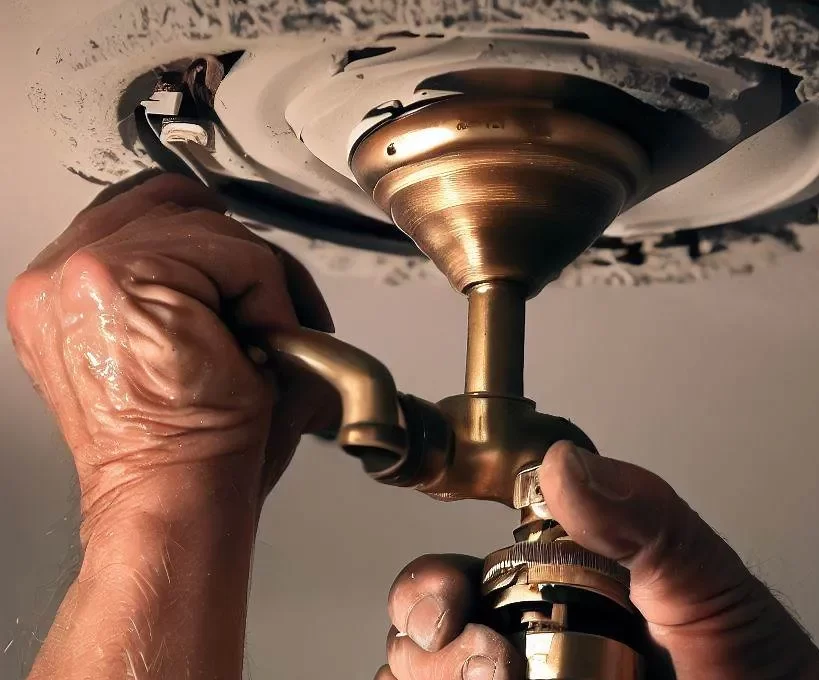Address
304 North Cardinal
St. Dorchester Center, MA 02124
Work Hours
Monday to Friday: 7AM - 7PM
Weekend: 10AM - 5PM
Address
304 North Cardinal
St. Dorchester Center, MA 02124
Work Hours
Monday to Friday: 7AM - 7PM
Weekend: 10AM - 5PM

The ceiling shower faucet is a popular choice for many homeowners who want to create a SPA like atmosphere in the bathroom.
They provide a luxurious and relaxing shower experience, making you feel refreshed and refreshed.
However, ceiling shower faucets are not without their drawbacks.
In fact, when working with them, you may encounter some common problems that you cannot ignore. Here are five of them and what to do about them.
One of the most annoying and potentially costly problems with ceiling shower faucets is leaking water. Leaks can be due to a variety of reasons, such as incorrect installation, loose connections, worn gaskets, or damaged pipes. Leaks can cause water damage to your ceilings, walls, floors, and furniture, as well as increase your water bill and waste precious resources. To prevent leaks, you should hire a professional plumber to install the ceiling shower faucet and inspect it regularly for signs of wear. If you notice drips or stains on the ceiling or walls, you should call a plumber right away to fix the problem.You can DIY at thoso 2 part,like cartridge or shower head.
Another common problem with ceiling shower faucets is low water pressure. Low water pressure can affect the quality and comfort of your shower, as well as the efficiency and performance of your faucets. Low water pressure can be caused by several factors, such as a clogged shower head, clogged pipes, faulty valves, or insufficient water supply. To improve water pressure, you should periodically clean your shower head with vinegar or a commercial cleaner to remove any mineral deposits or debris. You should also check the pipes and valves for any blockages or leaks and replace if necessary. If the problem persists, you may need to upgrade your water system or install a booster pump.
Rust is another issue that can affect a ceiling shower faucet and ruin its appearance and function. Rust may form due to exposure to moisture, oxygen, and metal particles in the water. Rust can corrode your faucets, causing them to leak, crack or break. Rust can also stain your ceilings and walls, creating an unsightly and unhealthy environment. To prevent rust, you should choose a ceiling shower faucet made of high-quality materials that resist rust and corrosion, such as stainless steel, brass, or chrome. You should also dry the faucet after each use and apply a protective coat or polish to keep it shiny and smooth.
Noise is another issue that can bother you when using a ceiling shower faucet. Noise can come from various sources such as water flow, pipes, valves or shower heads. Noise can be annoying and distracting, preventing you from relaxing and enjoying your shower. To reduce noise, you should choose a ceiling shower faucet with a low flow rate and quiet operation. You should also install soundproofing in the ceiling and walls to absorb noise from pipes and valves. You should also adjust the water pressure and temperature to avoid a hissing or popping shower head.
Cleanliness is another issue you may face when using ceiling shower faucets. Due to the height and position of the ceiling shower faucet, cleaning it can be challenging and time-consuming. You may need a ladder, a long-handled brush, or a special tool to reach and properly clean your faucet. You may also need to use harsh chemicals or abrasive cleaners to remove grime, soap scum, or mold from the faucet. These can damage your faucet and damage your health and the environment. For easier cleaning, you should choose a ceiling shower faucet with a self-cleaning feature, or a removable shower head that can be removed and cleaned individually. You should also use mild and environmentally friendly cleaners that are safe for your faucet and yourself.